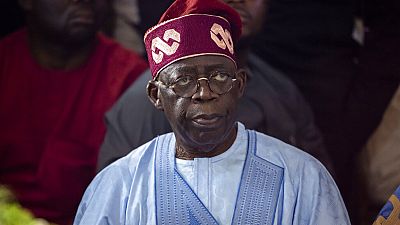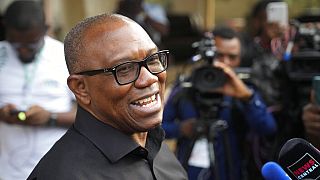Nigeria
The World Bank recognises the efforts made by the government of President Bola Ahmed Tinubu to improve Nigeria's economic situation, but insists on the need for further reforms, in a half-yearly report published on Wednesday.
It is "time to turn the corner by implementing fiscal and monetary measures in the short and medium term", recommended Shubham Chaudhuri, the Bank's Director in Nigeria, in a press release.
The institution is expecting "results" in the continent's largest economy, which is also one of the countries with the highest poverty levels.
As soon as he took office in May, Nigeria's new president, Bola Ahmed Tinubu, launched two major reforms designed to restore public finances and attract foreign investment: the end of fuel subsidies and the liberalisation of the naira, the national currency.
These measures had an immediate impact on the country's economy, with fuel prices tripling and inflation rising to more than 27% in October over the previous twelve months.
Since May, the naira has lost 41% of its value against the dollar on the official currency market and 30% on the parallel market, and food prices have risen by more than 31%.
Poverty in Africa's most populous country has risen from 40% in 2018 to 46% in 2023, according to the World Bank, affecting 104 million people in 2023 compared with 79 million five years earlier.
These reforms were "essential" and "going in the right direction", according to the World Bank, but "additional measures need to be taken", starting with remedying the "lack of transparency on oil revenues" and the gains made to public finances by the end of fuel subsidies.
The objective is to achieve "annual growth of 3.5% over the period 2023-2026", i.e. "0.5 points higher than if the reforms had not been launched", according to the Bretton Woods institution.
When presenting his budget to parliament at the end of November, President Tinubu appealed to the population's patience and assured them that the negative effects of his measures would be temporary. He expects inflation to fall to 21.4% and growth to reach at least 3.76% in 2024.













Go to video
Tanzania’s Prime Minister steps down ahead of elections
01:00
Pix of the Day: July 3, 2025
Go to video
’Black Empowerment’ law stalls Elon Musk's $113 million investment in SA
Go to video
In Kenya, 90% of packaged food needs health warning label under new rules
Go to video
Cameroon’s Tourism Minister joins presidential race as Biya’s silence fuels uncertainty
Go to video
INTERPOL seizes $65M in fake drugs, arrests 769 in largest-ever global crackdown